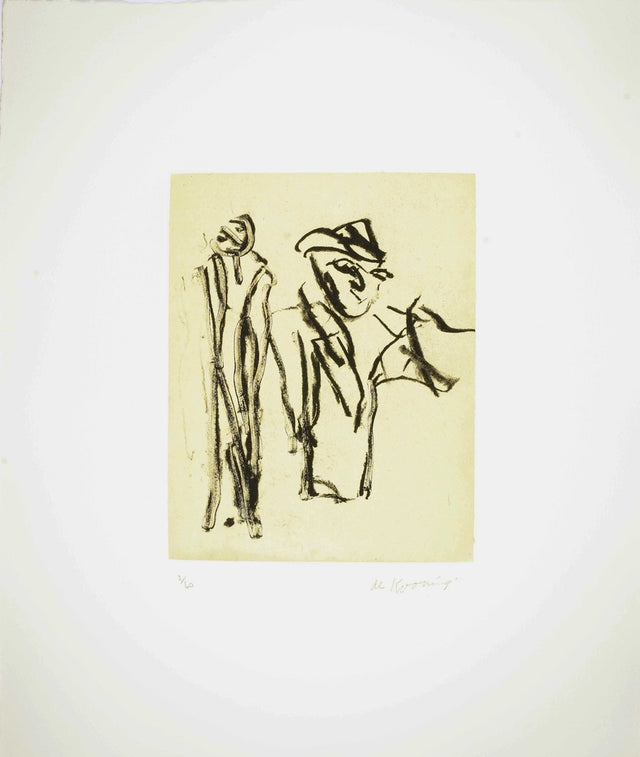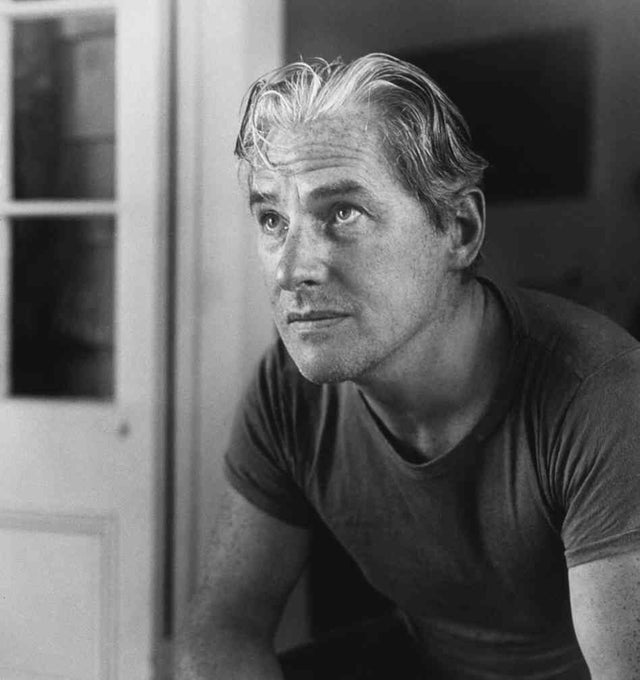
Willem de Kooning: Seventeen Lithographs for Frank O'Hara: Plate III, 1988
Willem de Kooning was born on April 24, 1904, into a working class family in Rotterdam, the Netherlands. A first-generation Abstract Expressionist, de Kooning is one of the most important artists of the 20th century. In 1950s New York, when painters like Jackson Pollock and Franz Kline were moving away from representational imagery toward pure abstraction, de Kooning maintained a commitment to the figurative tradition, developing a signature style that fused vivid color and aggressive paint handling with deconstructed images of the female form—a then-controversial body of works that has become known as his “Women” paintings.
De Kooning was awarded many honors in his lifetime, including The Presidential Medal of Freedom in 1964. His works have been included in thousands of exhibitions and are in the permanent collections of many of the finest art institutions in the world, including the Stedelijk Museum, Amsterdam; Tate Modern, London; and the National Gallery of Australia, Canberra; and in America such as The Museum of Modern Art, New York; The Metropolitan Museum of Art, New York; the Art Institute of Chicago; the Smithsonian Institution’s Hirshhorn Museum & Sculpture Garden, Washington D.C.; and the National Gallery of Art, Washington, D.C.
- Lithograph hors-texte, on handmade Japanese Yame paper chine colle to handmade Twinrocker paper
- Image/sheet: 29 3/4 x 25 in. (75.6 x 63.5 cm)
- Edition of 60
- Stamp-signed and numbered in pencil on lower margin
- Framed
Shipping charges and taxes will be calculated at checkout and included on your Order Confirmation.
Please see Shipping & Returns for more information.
About the Artist
Learn More
Willem de Kooning
Willem de Kooning was born on April 24, 1904, into a working class family in Rotterdam, the Netherlands. A first-generation Abstract Expressionist, de Kooning is one of the most important artists of the 20th century. In 1950s New York, when painters like Jackson Pollock and Franz Kline were moving away from representational imagery toward pure abstraction, de Kooning maintained a commitment to the figurative tradition, developing a signature style that fused vivid color and aggressive paint handling with deconstructed images of the female form—a then-controversial body of works that has become known as his “Women” paintings.
De Kooning was awarded many honors in his lifetime, including The Presidential Medal of Freedom in 1964. His works have been included in thousands of exhibitions and are in the permanent collections of many of the finest art institutions in the world, including the Stedelijk Museum, Amsterdam; Tate Modern, London; and the National Gallery of Australia, Canberra; and in America such as The Museum of Modern Art, New York; The Metropolitan Museum of Art, New York; the Art Institute of Chicago; the Smithsonian Institution’s Hirshhorn Museum & Sculpture Garden, Washington D.C.; and the National Gallery of Art, Washington, D.C.
Be the first to know about new collections and exclusive offers.
Subscribe to our newsletter

